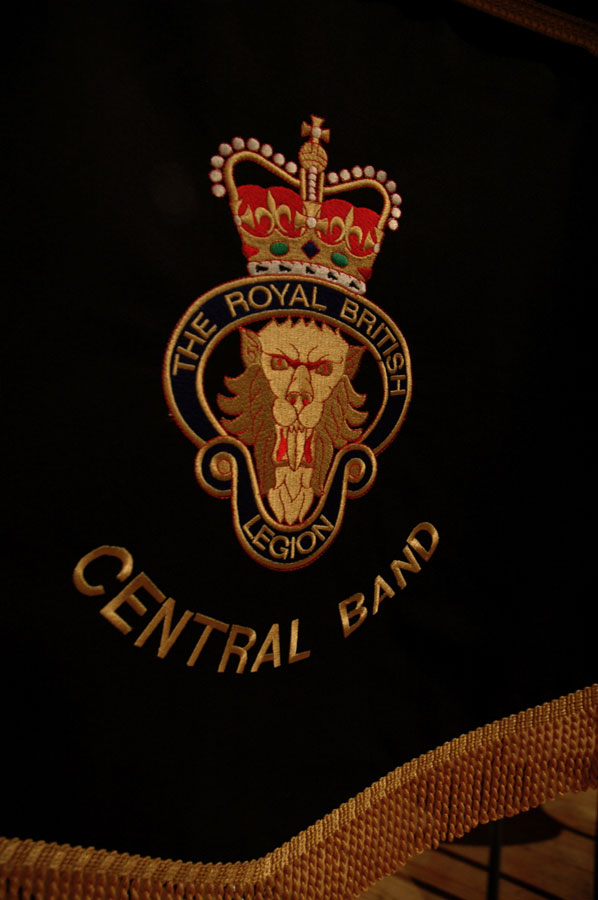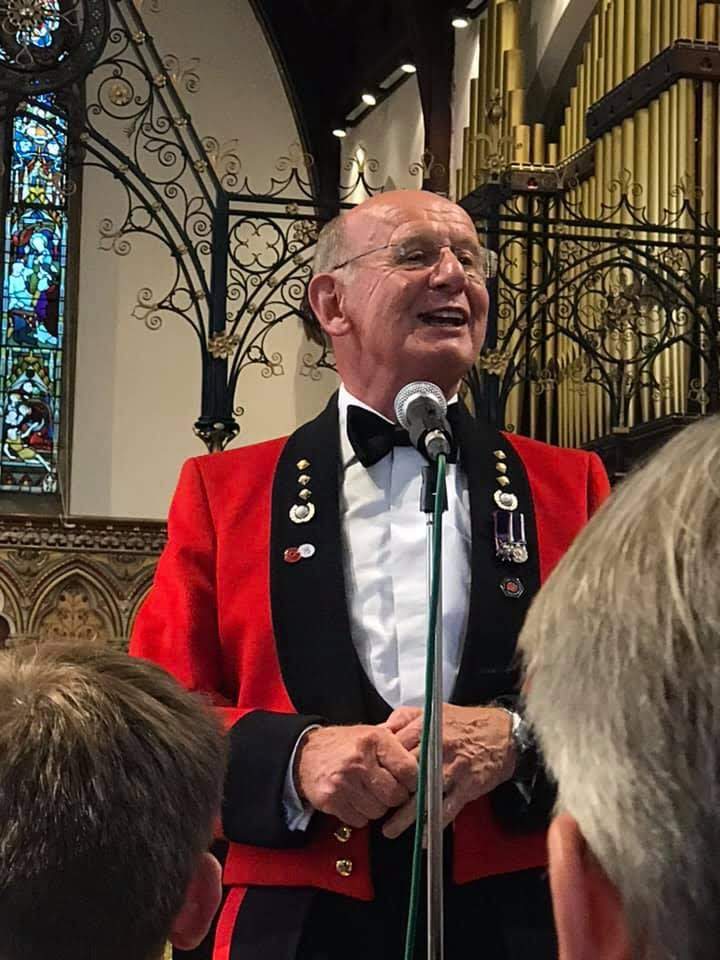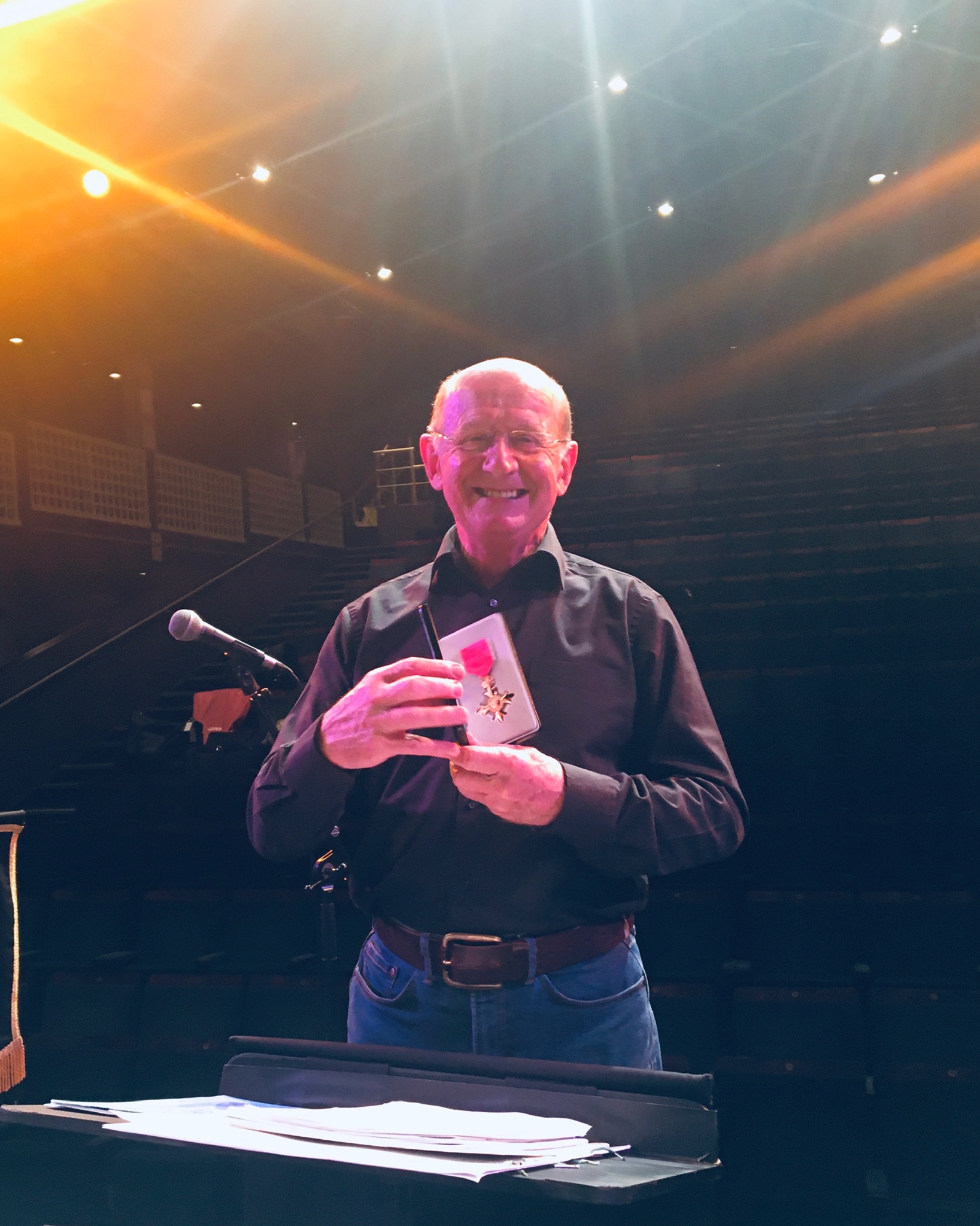About us
The Central Band
 |
The Central Band is the flagship band of The Royal British Legion. Under the baton of the energetic Captain David Cole, former Director of Music on HMY Britannia, the Central Band has established itself as a respected and in-demand ensemble.
|
 |
Musical DirectorDavid Cole OBE MVODavid joined the Royal Marines Band Service in 1967 from which he retired as a Director of Music after 32 years service. |
|
The Queen honoured him by awarding him membership of the Royal Victorian Order (MVO). Following his long and distinguished career in the Royal Marines he spent the next few years in teaching as the Head of Music at Wellesley House, a top Independent Preparatory School in Broadstairs, Kent where he also continued his life-long love of sport and athletics. David was appointed Director of Music to the Royal British Legion in 2006 and as such, directs the Central Band. He is also the musical director of the annual Festival of Remembrance, a major national event broadcast on BBC television and radio and has won three BAFTAs for the Festival and the BBC coverage of Passchendaele. |
 |
A brief history of The Central Band of The Royal British LegionOn a blacked-out November evening in 1944, a group of musicians sat in the bar of the British Legion Club in Epsom. These somewhat disconsolate drinkers had all been members of the 56th (Surrey) Battalion, Home Guard which had recently been stood down, bringing to an end four years of comradeship which would be sadly missed by all concerned. By drinking-up time, now much revived, these Dads Army musicians had resolved to form a new band under the banner of the British Legion and were immediately offered the use of an upstairs room at the club for weekly rehearsals. Thus began more than 77 eventful years of music making. The band literally started with nothing, having lost the facilities and resources associated with a well-equipped military body. The only instruments were those owned by the members, there were no music stands or music. The first stroke of luck came with a number of modest personal loans from local Aldermen and Councillors, who by their kind action gave the struggling band the kiss of life. |
MusicA second-hand music library was acquired together with some old and battered music stands and the band was nearly in business. The sad fact was that in 1945/46 few were interested in booking a civilian military-style band, when there were still plenty of Service bands awaiting demobilisation. Nevertheless, the band continued to attract demobbed musicians and by 1948 transferred to another Legion Branch in Epsom which offered a hall. The Rt.Hon. J Chuter Ede became the band's first President. He was Home Secretary at the time but found time to attend band committee meetings - accompanied by police escort! |
UniformsThe need for uniforms was important if the band were to continue. Some surplus Royal Marine tunics were acquired but there was not enough money for trousers or caps. In 1949, the band won first prize at the Berkshire and Neighbouring Counties Band Festival at Reading and the prize money was used to purchase caps - but still no trousers. Of course, the band never actually appeared without trousers! Contesting became important and the band was so successful that by using prize money kitting out was completed in 1954. The end of its first decade saw the band, although small in numbers, holding its own in the market place with an increasing reputation for quality playing and entertaining performances. |
Second DecadeThe band's second decade was one of steady growth, with summer engagements in London and local parks and contesting in the winter. In 1964, the band transferred its base to the Norbury British Legion Branch where it remained until 2016, when it moved to St John’s Church, Upper Norwood where it is in residence to this day. |
Gold medalIn 1970 the band gained a gold medal in the prestigious World Music Contest in Holland. This success resulted in the band being granted the status of 'Metropolitan Area Band', which was a first recognition by the Legion of the important role which bands could play in publicising its work. The band visited the famous Abbey Road Studios in 1973 to make its first recording, a compilation of marches, hymns and incidental music designed for use by those Legion Branches unable to afford a band for formal or ceremonial occasions. Eight years later a second record was made but, since 1981, the band has been a regular visitor to the recording studios and now has an impressive selection of recordings to its credit and sales of these are an important part of the band's activities. |
Central Band StatusBy 1983 the Royal British Legion was very much aware of the large numbers of bands representing the Legion throughout the country. The Director of Music at Kneller Hall was asked to carry out an inspection and assessment of all those wishing to compete for the status of Premier Band. As a result, the band was awarded the highest marks and granted the title of the National Band which was changed three years later to the Central Band of the Royal British Legion. |
Previous Directors of Music1944 - 1949 Cyril Daddo1949 - 1959 Norman Bettinson 1959 - 1972 Stanley Hibbert 1972 - 1974 Peter Civil 1974 - 1976 Edward Moon 1976 - 1977 Peter Dell 1977 - 1984 Jeremy Royle 1984 - 1984 Walter Wroe 1984 - 1985 Andrew Melvin 1985 - 1991 Jeremy Royle 1991 - 2006 Capt. Ted Whealing MVO 2006 - current David Cole OBE MVO |
Band PresidentsThe Rt. Honourable Chuter Ede MP |

.png)

